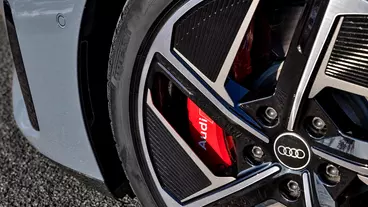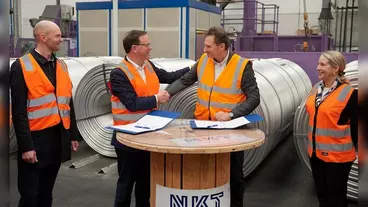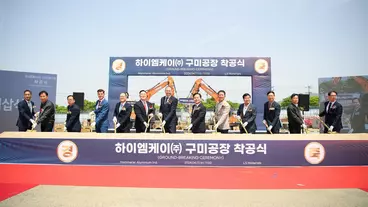Audi E-Tron to use aluminium from low-carbon technology

Alcoa is supplying aluminium for the wheels on the Audi E-Tron GT, the first vehicle that uses metal from a groundbreaking low-carbon technology.
The aluminium for E-Tron GT wheels is produced by a low-carbon technology that eliminates all direct CO2 emissions from the traditional smelting process. Alcoa invented the groundbreaking smelting technology that Elysis, a joint-venture company co-founded by Alcoa, is working to ramp up to a commercial scale. The process emits pure oxygen as a by-product and eliminates all GHG emissions by replacing the carbon anodes used in traditional aluminium smelting with inert, proprietary materials.
The aluminium material for te high-performance alloy wheels is produced with a combination of metal from the Elysis zero-carbon emissions smelting technology and Ecolum, Alcoa’s low-carbon aluminium brand. Ecolum metal is produced with less than 4t CO2/t of aluminium, including both direct and indirect (Scope 1 and Scope 2) emissions across the entire production chain, including bauxite mining and alumina refining.
Aluminium wheels made with low-carbon technology and ‘green’ electricity
The aluminium is delivered to Ronal Group for the manufacture of the E-Tron GT’s wheels, which are weight-optimized with Ronal Group’s flow forming technology and other innovations that improve overall aerodynamics. They are produced using 100% ‘green’ electricity in Landau, Germany, and used exclusively for Audi’s first electric sports car.
Marco Philippi, Audi’s head of Procurement Strategy, said: “Aluminium is the focus of our CO2 programme because producing this material requires a high energy input. We are therefore actively searching for innovative processes that help reduce CO2 emissions as early as possible in the creation process. The process created by Elysis is promising because it already takes effect in the raw material processing phase. These kinds of innovations allow us to increase our sustainability performance in the supply chain and ensure that our models arrive at the customers with a smaller carbon footprint.”

Hydro is to deliver recycled, low-carbon aluminium extrusions for the coming commercial e-vehicle with the UK start-up company Watt Electric Vehicles (WEVC).

Hydro and Nordic power cable provider, NKT, have entered into a strategic partnership to develop a low-carbon aluminium power cable value chain for the development of Europe’s renewable energy grid.

The official ground-breaking ceremony marks the next phase of the joint venture between the HAI Group and LS Cable & System.
